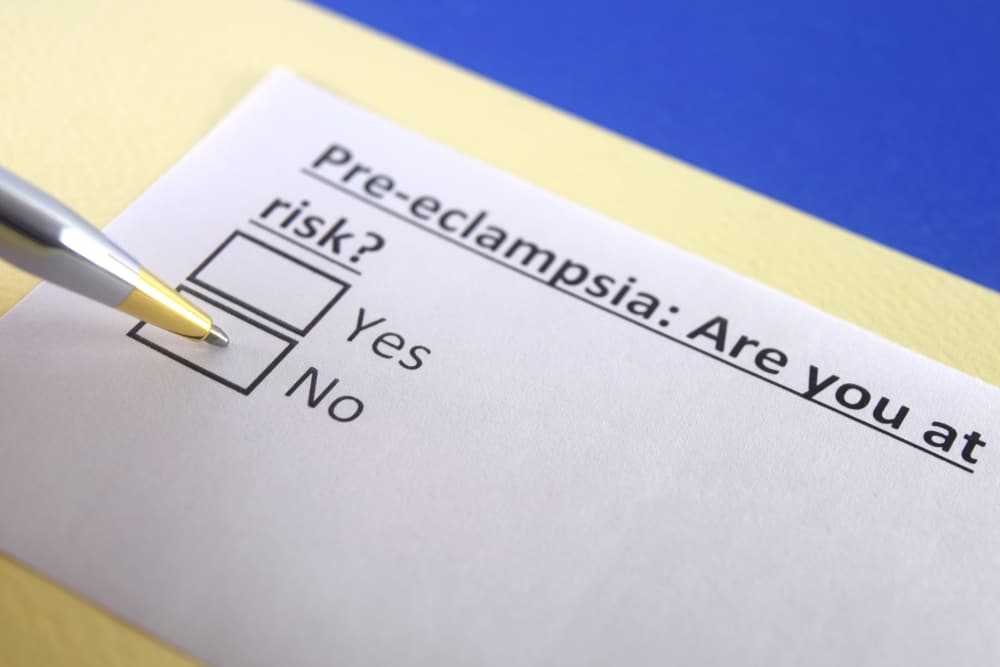Pregnancy can come with many educational changes and many health concerns. Finding reliable advice to recognize the signs and manage any complications is critical in maintaining both the mother’s and the baby’s well-being. Pre-eclampsia is a perfect example; it’s a common yet complex condition that pregnant women should be aware of to ensure timely diagnosis and treatment. In this blog post, we will give an overview of what pre-eclampsia is, how it affects pregnant women during their pregnancy journey, warnings associated with its symptoms, risk factors involved in developing the condition, and prevention methods to reduce the chances or progression of conditions such as pre-eclampsia. Read on for all you need to know about pre-eclampsia!
What is pre-eclampsia, and what are the symptoms?
Pre-eclampsia is a pregnancy-related condition that results in high blood pressure. This potentially dangerous complication typically occurs after 20 weeks of gestation and, if untreated, can lead to serious or possibly fatal health risks for both mother and baby. The common symptoms include elevated blood pressure (the systolic number should be over 140 and the diastolic over 90), face, hands, feet, or legs swelling, and vision changes. Less common signs are sudden weight gain due to fluid retention, nausea and upper abdominal pain.
What are the risks associated with pre-eclampsia in pregnancy?
Without prompt treatment, pre-eclampsia can lead to life-threatening conditions for both mother and baby. The risks associated with pre-eclampsia include premature birth, low birth weight, placental abruption and stillbirth. In addition, mothers with pre-eclampsia may have an increased risk of stroke, kidney problems and convulsions. The best way to reduce the risks associated with pre-eclampsia is to seek timely medical advice and have regular prenatal check-ups. This will allow potential warning signs to be identified early on and appropriate actions to be taken to reduce the risk of complications.
How is pre-eclampsia diagnosed and treated in pregnant women?
Diagnosis is usually made during routine prenatal screenings, with elevated blood pressure, protein in the urine, and sometimes an excess of platelets found in the blood being common signs. To make a positive diagnosis of pre-eclampsia, healthcare providers may order additional tests, such as an ultrasound, to check for signs of placental issues or other markers in the urine. Treatment provided depends on how far along a woman is in her pregnancy but typically includes medication to lower blood pressure, as well as monitoring closely for any further complications. When pre-eclampsia is severe or worsening rapidly, early delivery of the baby may be necessary. Patients are advised to inform their healthcare provider about any changes in health or wellness for both mother and baby before, during, and after pregnancy so that diagnoses can be made promptly and accurate treatment plans followed.
Can pre-eclampsia be prevented during pregnancy?
As the cause of pre-eclampsia remains unclear, it is generally difficult to prevent it ahead of time. However, there are some preventative measures that pregnant women can take to reduce the risk of pre-eclampsia onset. These measures include getting an appropriate amount of exercise and eating a properly balanced diet rich in minerals like calcium and magnesium. Additionally, pregnant women need to ensure they get adequate rest during their pregnancy, avoiding stress wherever possible and consulting a medical professional regularly. While these actions may not guarantee the prevention of pre-eclampsia, taking care of one’s health has many beneficial effects on one’s overall health and well-being.
Management of pre-eclampsia at Lotus Medical Centre, Newport NSW, Australia
Pre-eclampsia is a dangerous complication that can occur during pregnancy. If you suspect that you or someone you know may have pre-eclampsia, it is important to seek medical help immediately. With early detection and treatment, many cases of pre-eclampsia can be managed successfully.
If you have any questions, feel free to reach out to our doctors in Brunswick.

